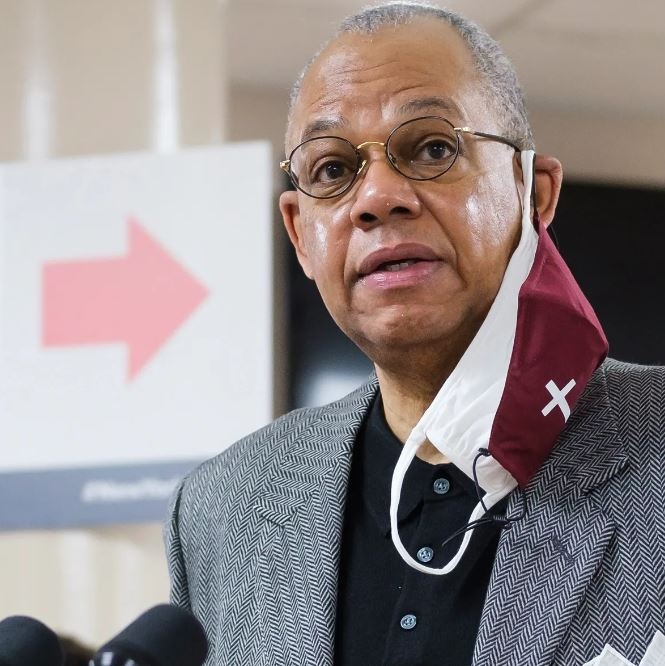The Rev. Calvin O. Butts III, the Harlem preacher whose oratory skills and political cunning were a force for social and racial justice, and who collected $1 billion to redevelop America’s most historic and significant Black communities, passed away at his Harlem home on Friday. He was 73.
His son Calvin O. Butts IV said that pancreatic cancer was the reason.
In his thirty years as pastor of Abyssinian Baptist Church, Mr. Butts’s work mirrored the enormous shifts in how Americans tackled the nation’s racist past. In New York, he attacked the white power system and made good on his promises by establishing educational, commercial, and homeownership possibilities for Harlem inhabitants.
In the 1960s, he drew inspiration from the Rev. Dr. Martin Luther King Jr., and at the turn of the 21st century, he was Mayor Michael R. Bloomberg’s partner in striving to achieve permanent change in Harlem and beyond.
Mr. Butts, a 22-year-old seminarian, was hired by the church while its new pastor, Samuel Proctor, and his immediate predecessor, the irreverent and flamboyant 11-term congressman Adam Clayton Powell Jr., were preaching.
Mr. Bloomberg added in a statement following his death, “Reverend Butts took the concept of constructing God’s kingdom seriously.”
Mr. Butts also persuaded some record labels and radio stations to reject violent and misogynistic rap lyrics, whitewashed Harlem billboards advertising alcohol and cigarettes, and played transactional politics to secure the most resources for his community from the party in power in Washington, Albany, and New York City.
Darren Walker, president of the Ford Foundation and former chief operating officer of the Abyssinian Development Corporation, said in an interview that Reverend Butts worked more successfully than any other New York leader at the nexus of power, politics, and religion. “He appreciated the significance of religion in our lives, particularly in the Black community.
“However, he also knew how to wield and demand authority from people who often wanted to hoard it. Consequently, he was a realist, a pragmatist, and a dreamer.
The nonprofit Abyssinian Development Corporation served as an example for other faith-based development organisations that invested in local New York City and national communities.
Sheena Wright, the deputy for strategic initiatives of Mayor Eric Adams and the former president of the corporation, referred to Mr. Butts as a civil rights leader whose “impact on creating educational institutions, commercial development, homeownership, affordable housing, and providing social services to the needy will be felt for generations.”
The company was founded in 1989, the same year that Mr. Butts became Abyssinian’s pastor, compelling him to modify the rhetoric he had been allowed to wield more freely as the church’s second-in-command.
During this time, he accused several black political officials of being too accommodating to the white power system, and he accused Mayor Edward I. Koch of plain racism. He even vowed to run against such people when they sought re-election, but he never did, despite having aspired to become the mayor of New York since the third grade.
Mr. Butts intervened to mediate the appointment of a special prosecutor by Gov. Mario M. Cuomo after more militant Black leaders refused to cooperate with authorities in the 1986 racially motivated slaying of a Black man pursued into a highway by a white gang in Howard Beach, Queens.
The next year, however, he skilfully distanced himself from the allegations of Tawana Brawley, a Black adolescent who claimed that four white men abducted and raped her, a charge that was never verified.
